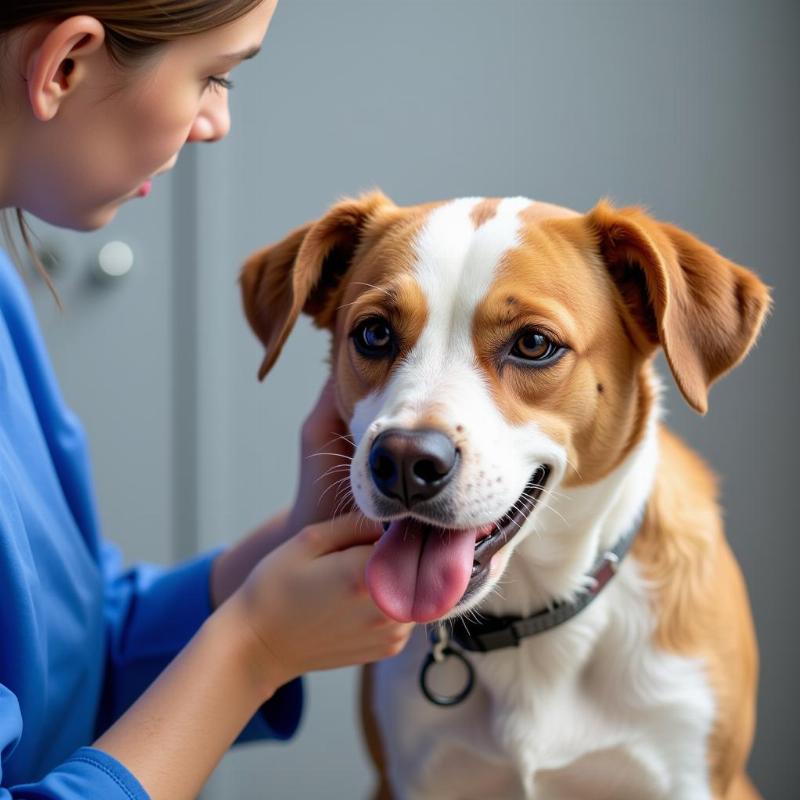Costco hot dogs are a beloved American classic, but for some, enjoying this iconic treat can be risky due to potential ingredient allergies. Understanding costco hot dog ingredients allergy concerns is crucial for both dog owners and those who share their food with their furry friends. This article will dive deep into the potential allergens present in Costco hot dogs, discuss the signs of allergic reactions in dogs, and provide practical tips for keeping your canine companion safe.
Deciphering Costco Hot Dog Ingredients and Potential Allergens
Costco hot dogs are primarily made of beef, but they also contain other ingredients that can trigger allergies in sensitive individuals. These include:
- Beef: While the main component, beef itself can be an allergen for some dogs. Beef allergies are less common than other protein allergies like chicken or lamb, but they can still occur.
- Soy Protein Concentrate: This is a common additive used in processed meats as a filler and binder. Soy is a known allergen for both humans and dogs.
- Corn Syrup: Used as a sweetener, corn can also be an allergen, although less common than soy.
- Sodium Phosphate: This additive helps retain moisture and improve texture. While not a common allergen, some dogs may have sensitivities to phosphates.
- Potassium Lactate: Another additive used for preservation and flavor enhancement. While generally safe, it’s a derivative of milk and could potentially trigger a reaction in dogs with dairy sensitivities.
- Flavorings and Spices: These can be a hidden source of allergens, as specific ingredients are often not listed. Some common spices like garlic and onion can be toxic to dogs.
Recognizing Allergic Reactions in Dogs
If your dog is allergic to an ingredient in a Costco hot dog, they might exhibit a variety of symptoms, ranging from mild to severe. These include:
- Skin Issues: Itching, redness, hives, and hot spots are common signs of an allergic reaction. Your dog may excessively lick or scratch their paws, ears, and face.
- Gastrointestinal Problems: Vomiting, diarrhea, and excessive gas can be signs of a food allergy.
- Respiratory Issues: Sneezing, coughing, and wheezing can also be triggered by allergens. In severe cases, facial swelling can occur, which can obstruct breathing.
- Lethargy and Behavioral Changes: Your dog may seem unusually tired or exhibit changes in behavior, such as restlessness or irritability.
Keeping Your Dog Safe from Costco Hot Dog Ingredient Allergies
It’s crucial to be vigilant about what you feed your dog. If you suspect a food allergy, consult your veterinarian immediately.  Vet Examining Dog Here are some preventative measures:
Vet Examining Dog Here are some preventative measures:
- Avoid Sharing Costco Hot Dogs: The simplest way to prevent an allergic reaction is to avoid giving your dog Costco hot dogs altogether. There are plenty of other dog-friendly treats available.
- Read Labels Carefully: If you do choose to feed your dog processed meats, meticulously examine the ingredient list for potential allergens.
- Introduce New Foods Gradually: When introducing any new food to your dog’s diet, do so slowly and in small amounts. This allows you to monitor for any adverse reactions.
- Carry an Antihistamine: If you know your dog has allergies, keep an antihistamine approved by your veterinarian on hand for emergencies.
Conclusion
While Costco hot dogs are a popular treat, it’s essential to be aware of the potential allergy risks they pose to dogs. By understanding the ingredients and recognizing the signs of allergic reactions, you can take the necessary steps to protect your furry friend and ensure their continued health and happiness.
FAQ
- Can I give my dog a small piece of a Costco hot dog? It’s generally best to avoid giving your dog any processed meats, especially if they have a history of allergies.
- What should I do if my dog has an allergic reaction? Contact your veterinarian immediately.
- Are there any safe alternatives to Costco hot dogs for my dog? Yes, there are many dog-specific treats available that are formulated to be safe and nutritious for dogs.
- What are the most common food allergens for dogs? Beef, chicken, dairy, wheat, soy, and corn are some of the most common food allergens for dogs.
- How can I test my dog for food allergies? Your veterinarian can perform allergy testing to determine which specific foods your dog is allergic to.
- Can food allergies develop in older dogs? Yes, food allergies can develop at any age.
- Are grain-free hot dogs a safer option for my dog? Not necessarily. While some dogs may have sensitivities to grains, others may be allergic to ingredients in grain-free products.
Beautdogs.us is your premier resource for all things dog-related in the US. We offer expert advice on dog breeds, care, and product recommendations. Whether you’re a seasoned dog owner or just starting out, Beautdogs.us is here to help you navigate the exciting world of canine companionship. For more information, contact us at [email protected] or call us at +1 501-555-7529.